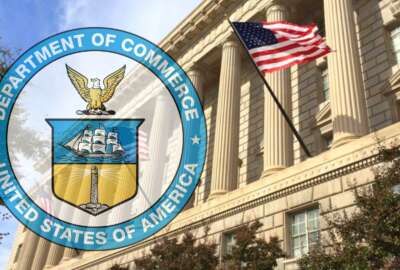Exit interview with DHS IG Richard Skinner
Skinner shares what it was like to oversee an organization that included 23 agencies.
After more than 40 years of public service, Richard Skinner is retiring on March 1.
Skinner has been with the Inspector General’s Office for the Homeland Security Department since the agency was created in 2003. He first served as Deputy Inspector General and then was confirmed as Inspector General in 2005.
Skinner began his federal career in 1969 at the first civilian inspector general’s office in the government at the Department of Agriculture, he said in an interview with the DorbobekINSIDER.
“My original intention was not to make a career out of government,” Skinner said. “It was something I wanted to do, that time in everyone’s lives during the Vietnam War and the social unrest that was occurring at the time, and I did want to serve in the government for a period of time. But once I got in and started working, I became hooked and I began to really love the type of work I was doing.”
From Agriculture, Skinner moved to the Inspector General Offices at other agencies — Departments of Justice, Commerce, State and the Arms Controls and Disarmament Agency.
Over his four decades of public service, Skinner said the IG community in government has “matured.”
“And I was part of it. I was there from the beginning,” he said. “We were feeling our way as to who we were and trying to create an identity for ourselves and what our role was in the department, keeping in mind we had to answer to the head of the department – the secretary – as well as to the Congress. Oftentimes we felt like we were straddling a barbed wire fence.”
The passage of the 1978 Inspectors General Act established the IG’s Office and reforms two year ago further strengthened the offices.
Skinner said it’s “absolutely essential” for IGs to work closely with the people they are providing oversight of.
Agencies “have to understand that we’re not going to surprise you. We’re going to work with you,” Skinner said.
“You cannot do that with an adversarial relationship,” he said. “We may disagree but we can agree to disagree in a collegial way.”
Copyright © 2025 Federal News Network. All rights reserved. This website is not intended for users located within the European Economic Area.





